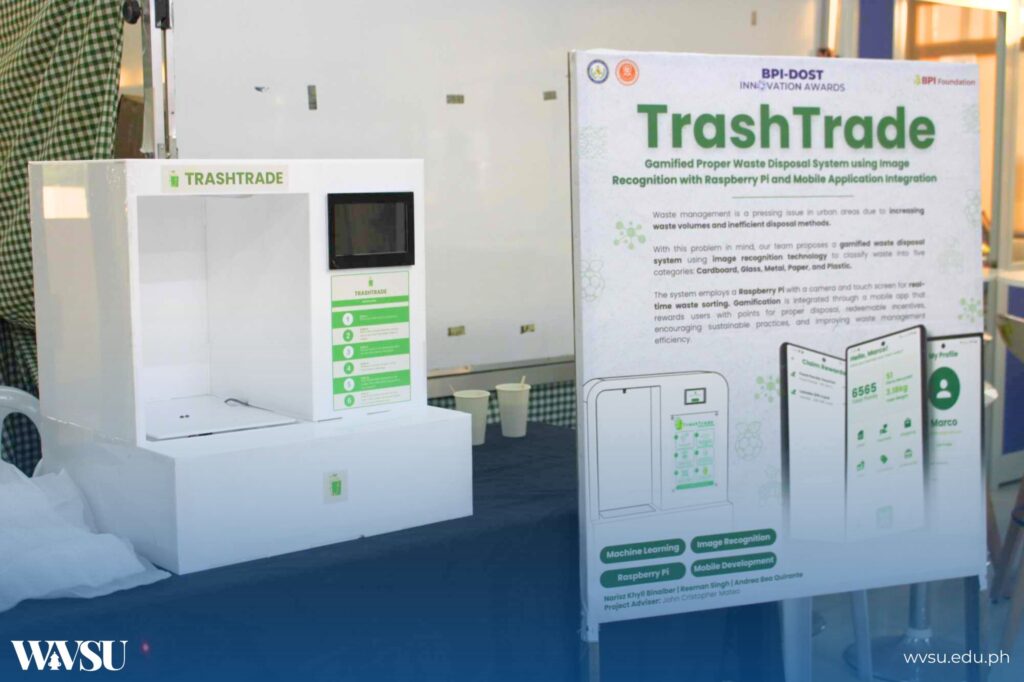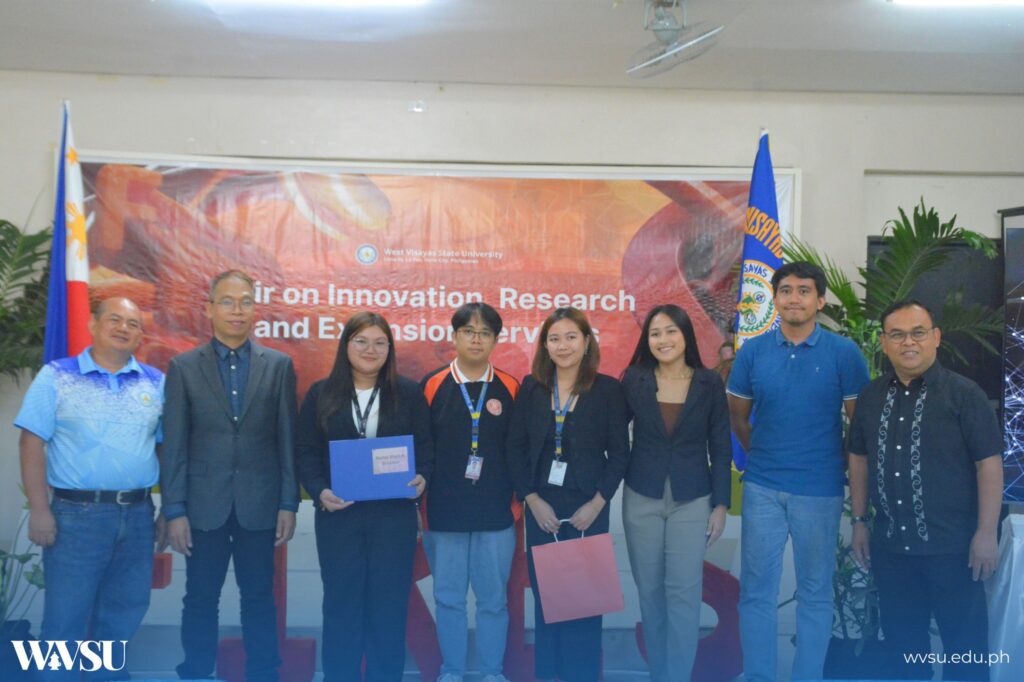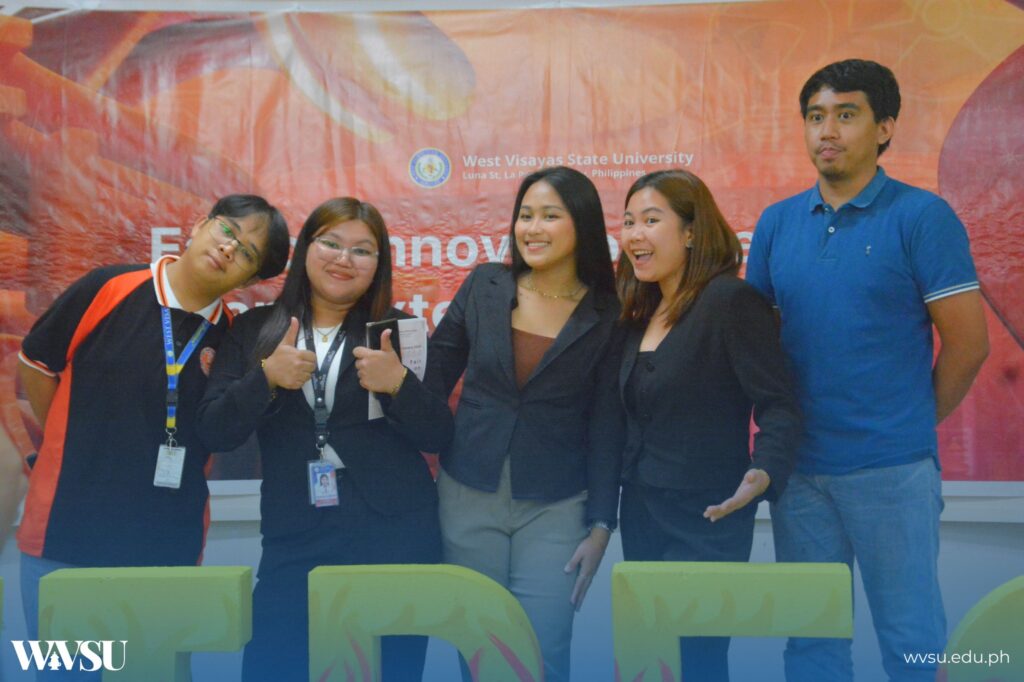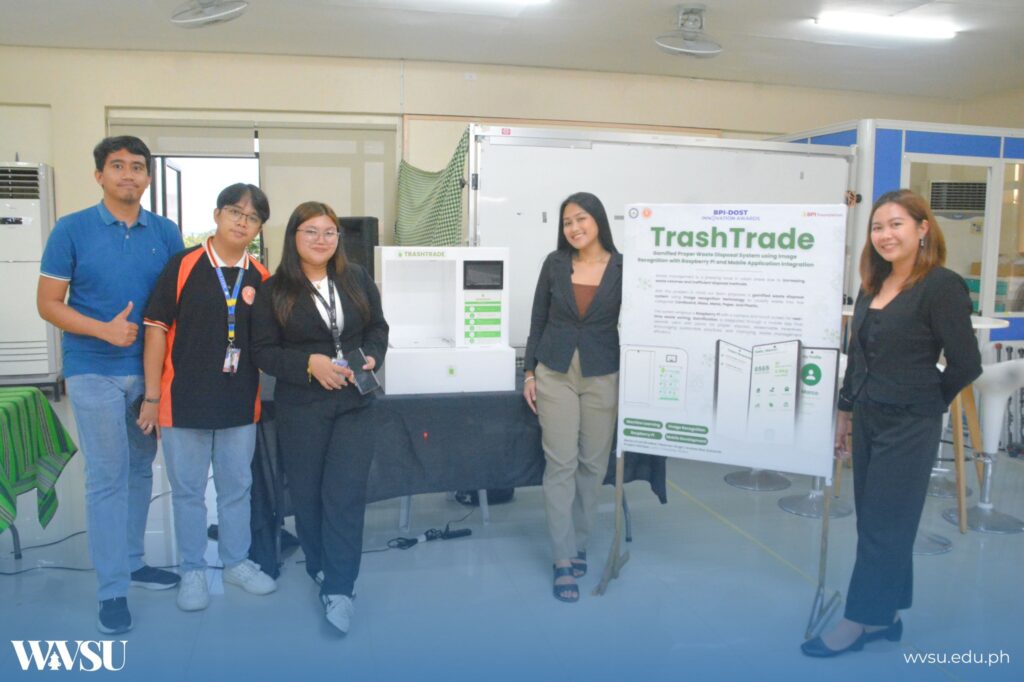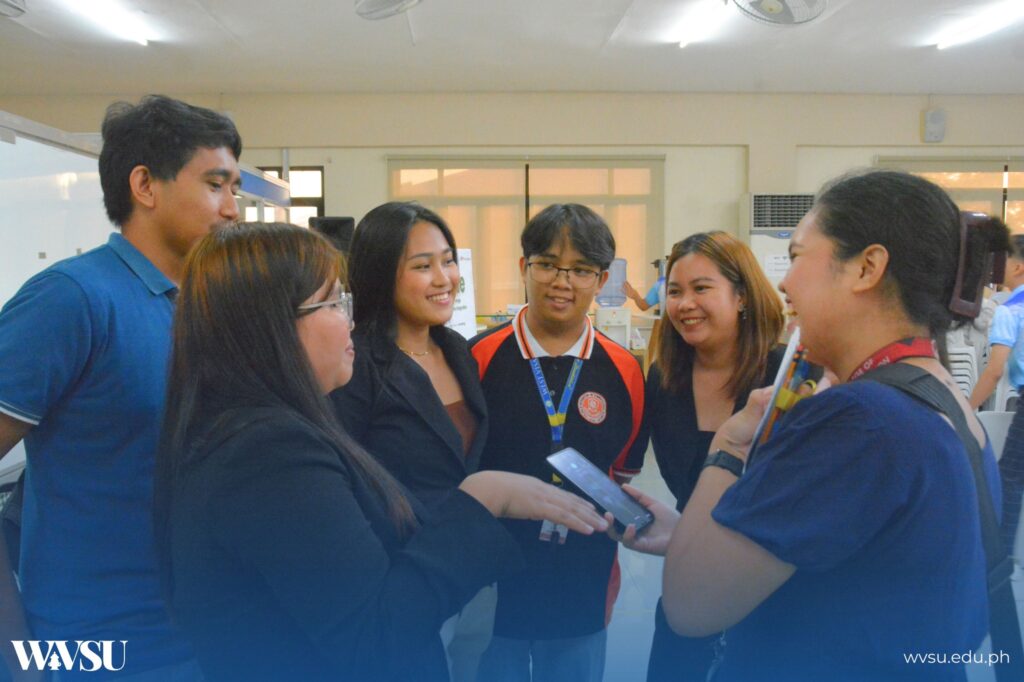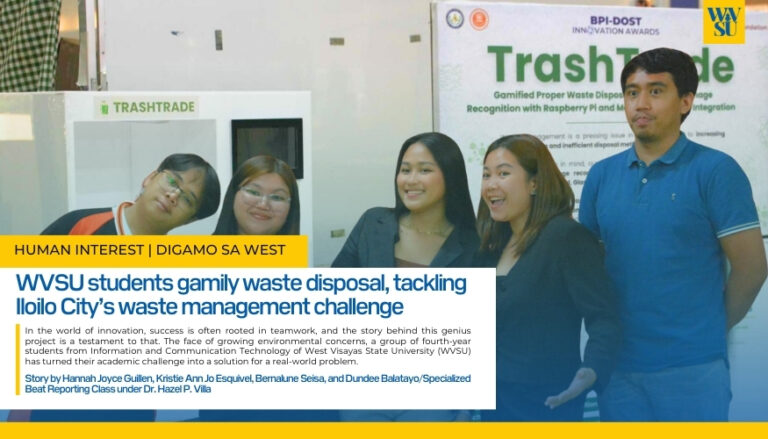In the world of innovation, success is often rooted in teamwork, and the story behind this genius project is a testament to that. The face of growing environmental concerns, a group of fourth-year students from Information and Communication Technology of West Visayas State University (WVSU) has turned their academic challenge into a solution for a real-world problem.
Starting from a goal to finish a simple thesis turns into a desire to strengthen waste management. With their innovative project, TrashTrade: Gamified Proper Waste Disposal System Using Image Recognition with Raspberry Pi and Mobile Application Integration, these students are merging technology and sustainability in a way that could reshape urban areas and handle waste.
They presented their work during the Fair on Innovation, Research, and Extension Services (FIRES) at the 4th Floor of the Research and Extension Building of West Visayas State University (WVSU) on Jan. 28, 2025. FIRES is one of the activities during WVSU’s University Days which runs from Jan. 27 to 31, 2025.
The journey of the TrashTrade project began in the midst of a pandemic, when the team leader, Reeman Singh, with his team members Narisz Khyll Binalber, Andrea Bea Quirante, Wilmer Suelo, Kyla Joy Trompeta, and their adviser, Sir John Christopher Mateo—who were not initially friends—decided to form a group. The motivation behind this project wasn’t just about creating an innovative thesis, but it was driven by a pressing need to address the issue of waste management. Knowing that waste management here in Iloilo City is poor, they came up with a meaningful system and idea.
Overcoming challenges through teamwork
“But before we successfully succeeded, we also went into different ideas. Our first idea is trash-to-Wi-Fi, and 10% is just our proposal. Actually, the panelists were not convinced,” said Ms. Trompeta. Although their first proposal didn’t fully convince the panel, they didn’t back down.
They evolved the concept into a more culturally relevant system that would allow people to redeem points from their waste to access local resources, like free internet and other community services. In pursuit of innovation, several challenges, particularly technical issues, were encountered along the way. Members of the team expressed that it was their first time encountering some of these issues, specifically on the software side, and for them to be able to overcome this, they have to do some research.
WVSU played a crucial role in the development and eventual success of TrashTrade. The students emphasized how the university’s support—both academic and in terms of facilities—helped them shape their project into something viable. West Visayas State University helped them a lot, and it is the place where they met each other, who had expertise and contributed to making the system a reality.
Prof. John Christopher Mateo, their adviser, also shared his pride in the team’s efforts, “Honestly, my role as an adviser was minimal. They were so independent and diligent that I mostly asked them for progress updates. Their ability to plan, execute, and present their proposal was exceptional. They were very hands-on and committed to every step.”
A familiar concept with a local twist
The TrashTrade system aligns with a global trend of using technology to encourage proper waste disposal. According to API4.A, a technology platform that offers artificial intelligence solutions for visual recognition tasks, AI-powered image recognition has been used to automate waste sorting and monitor fill levels to improve recycling efficiency.
Additionally, Waste360, a leading media and information provider for the waste and recycling industry, has reported on MyMatR Duo, a smart waste receptacle that gamifies trash disposal by giving users instant feedback and reward points for correct sorting. While not entirely new, TrashTrade’s integration of gamification and image recognition adapts these technologies to the specific needs of Iloilo City, offering a potential solution to its waste management problems.
Prof. Mateo believes the system is ready for startup development. “I hope they pursue it,” he said.
The challenges did not stop at technical aspects. As any group of students can relate, balancing schoolwork, assignments, and thesis preparation was not easy. The Trashtrade team, however, had a secret weapon: their strict and focused group leader, for which the team is grateful.
Once dreamers and now catalysts of environmental change, Singh, Binalber, Quirante, Suelo, and Trompeta look toward the future, as their hard work and dedication may very well pave the way for TrashTrade to be the next big step in transforming how communities manage waste and access resources.
Story by Hannah Joyce Guillen, Kristie Ann Jo Esquivel, Bernalune Seisa, and Dundee Balatayo/Specialized Beat Reporting Class under Dr. Hazel P. Villa
Photos by Dundee Balatayo/Specialized Beat Reporting Class under Dr. Hazel P. Villa
